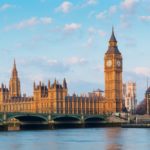News - Construction News
State of Trade survey reveals optimism among builders

Following the Federation of Master Builders’ (FMB) State of Trade Survey for the fourth quarter of 2019, it was discovered that small-to-medium enterprise (SME) builders experienced a depleted workload, likely on account of political uncertainty, yet remain optimistic in the start of the decade.
Going into more detail, the State of Trade survey revealed that a proportion of 21 per cent of the SME builders which were interviewed experienced a decline in workload during the final quarter of last year, yet a proportion of 37 per cent of builders remained optimistic about workloads within the construction industry for 2020.
The Chief Executive of the FMB, Brian Berry stated: “The end of 2019 was a very turbulent period in the UK, both politically and economically, with Brexit gridlock and a General Election. When you consider this, along with the bad weather we saw in October, it is not surprising that the order books of small and medium-sized construction firms took a hit. We know that many consumers were holding off making important spending decisions until the outcome of the General Election was known and this took its toll on workloads.
“Builders are more optimistic for the for the future, however, with over a third of SMEs predicting higher workloads over the coming three months. We are yet to see if there has been a so called ‘Boris bounce’ yet, following the election result, but there are some positive signs. For example, employment levels amongst SMEs have returned to positive ground for the first time since the start of 2019. This of course, brings with it concerns around skills shortages, and SMEs continue to struggle to hire key trades such as bricklayers and carpenters”.
“With the Budget due in early March, this provides a perfect opportunity to restore some confidence back into the construction industry. Builders will be instrumental in delivering key government objectives such as 300,000 new homes by the mid-2020s and reaching Net Zero carbon emissions by 2050. Radical policies will be needed to deliver these targets which should include reform of the planning system and a new strategy to make our existing homes more energy efficient.”
If you would like to read more articles like this then please click here.
Related Articles
More News
- Building Britain: Ibstock ready to play their part in getting Britain building again
25 Jul 24
After Labour’s landslide win in July’s General Election, incumbent Chancellor of the Exchequer Rachel Reeves
- Get Britain Building
24 Jul 24
The King said: "My ministers will get Britain building.
- Cool roofs are best at beating cities’ heat
23 Jul 24
Painting roofs white or covering them with a reflective coating would be more effective at






